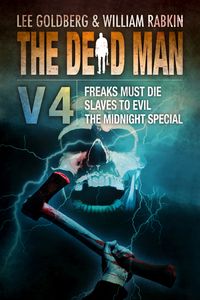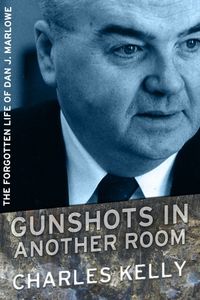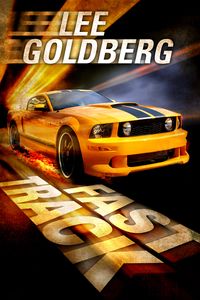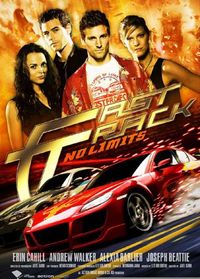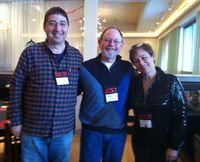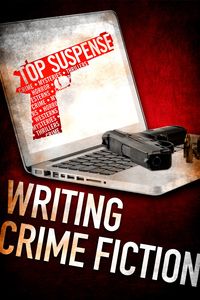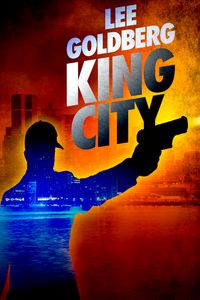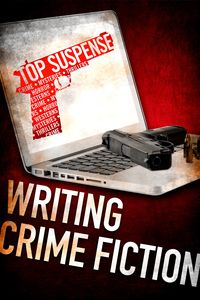 It’s news to no one that the publishing industry has undergone a massive paradigm shift in the last twenty-four months that has changed everything about the business for authors, booksellers, and publishers. But there's one thing that hasn't changed, the most important thing of all, and sadly too many authors aren't paying enough attention to it.
It’s news to no one that the publishing industry has undergone a massive paradigm shift in the last twenty-four months that has changed everything about the business for authors, booksellers, and publishers. But there's one thing that hasn't changed, the most important thing of all, and sadly too many authors aren't paying enough attention to it.
Thanks initially to the introduction of the Kindle, and Amazon opening up their storefront to authors, it’s no longer necessary to have a publisher in order to reach readers. Authors now have options they never had before for getting their books to a national audience. Being dropped by a publisher, or having your books go out of print, are no longer the kiss of death. On the contrary, they present perhaps more profitable opportunities to exploit your material.
For new authors, it’s no longer necessary to go through the struggle of finding an agent who will then sell their work to a publisher, an odyssey than can take years…if it happens at all. Now it’s the publishers, editors and agent who are struggling ….desperately trying to reinvent themselves in a radically changing business.
Self-publishing is no longer the realm of vanity press vultures preying on aspiring, naïve and desperate authors…nor is it the complicated and outrageously expensive gamble, with pitiful chances of success, that it once was. It’s now possible to publish your book, both electronically and in print, with a mouse click, with little to no upfront investment…and to have your book on the virtual shelf on equal footing with the likes of James Patterson and Nora Roberts, at the Amazon and Barnes & Noble storefronts.
Writing careers are being born and, in the case of mid-list authors, reborn.
Now whenever authors get together, we are no longer discussing how we write, or problems with our editors, or tales of life on the road. The talk today is inevitably about reversion of rights letters, book scanning, copyediting, e-book formatting, the nuances of cover art, manipulation of metadata, e-pub vs. mobi, pricing, giveaways, marketing and publicity, social networking, blogging, tagging, liking, tweeting and pinning.
For established, professional writers, coming into self-publishing after years in the “legacy” publishing world, that isn’t such a bad thing. They’ve learned and perfected their craft (or maybe I am just trying to excuse my own obsession with those aspects of the business). But I’ve listened to new writers at conferences or while lurking on writers’ boards and the newbie writers seem obsessed with everything except what matters most: the writing.
I believe it’s that misguided obsession that s leading to the ethical scandals we’ve been seeing lately… like John Locke who hired people to buy his books and write fake reviews (to artificially boost his rankings and acclaim) to establish himself… and Stephen Leather and RJ Ellory who both used “sock-puppets” on Amazon and social media to generate false buzz and fake reviews to boost their popularity and attack their "rivals."
What authors need to remind themselves is that all of that formatting, pricing, tweeting, social networking, etc. is meaningless if you don’t know how to tell a good story, create compelling characters, develop a strong voice, set a scene, establish a sense of place, or manage point-of-view.
I rarely hear writers anymore talking about the pluses and minuses of out-lining, the importance of an active protagonist, the different kinds of conflict, or the elements of structure. The craft of writing has taken a backseat to the business of publishing.
That’s one reason why the members of Top Suspense, have put together a book called WRITING CRIME FICTION. We want to get the dialogue started again… to bring writers back to the one thing that will never change, even as the publishing business reinvents itself.
People want a good story.
That’s why writers write and readers buy books. Good stories. Great characters. That's what matters. Not whether you should write an erotic novel to cash in on FIFTY SHADES OF GRAY… or maybe focus on a YA novels since the HUNGER GAMES series is so hot.
Writers have been handed a great opportunity in the last twenty-four months. We now have tremendous control over our creative and financial lives as writers that we never had before. We now have choices that simply didn’t exist before.
Don’t blow it. Don’t become so focused on the business that you forget the craft. Take advantage of the freedom, and the opportunities, and the new choices by focusing on telling great stories. Hone your craft, Find your voice…focus and less on how the story is packaged, sold and promoted. Help us shift the balance back to where it belongs…
Storytelling.
 A friend recommended a crime novel to me that came out a few years ago from a major publisher and that was also praised by some big-name authors (including some who have praised my work). I brought the book along with me on a short day trip for something to read while my wife & daughter were shopping. The book was awful, but some of the terrible writing was worth sharing. Here are some of my favorite examples:
A friend recommended a crime novel to me that came out a few years ago from a major publisher and that was also praised by some big-name authors (including some who have praised my work). I brought the book along with me on a short day trip for something to read while my wife & daughter were shopping. The book was awful, but some of the terrible writing was worth sharing. Here are some of my favorite examples:
